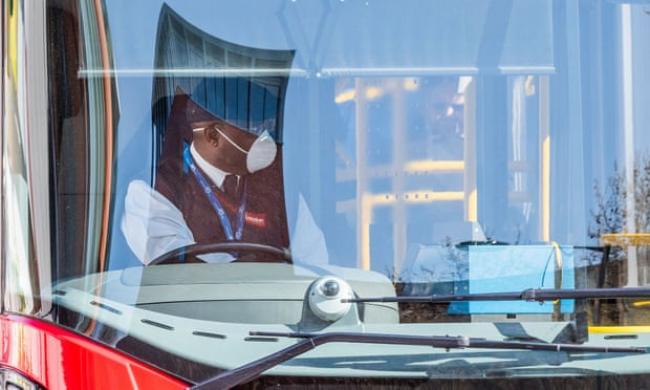Articles Menu

Apr. 9, 2020
Coronavirus is the great leveller. Rich or poor, we have all been plunged into turmoil, insecurity and isolation, bonded together by our inability to imagine what life will be like in two weeks, let alone two months. Tell that to Jhon, a 46-year-old chef at the Warrington Hotel, a plush pub in the leafy west London district of Maida Vale. On 18 March, he and two kitchen porters were sent a letter from their bosses announcing “some extremely difficult decisions” had to be made that meant their positions had “been made redundant”. No furlough, no 80% wage subsidy for his £10-an-hour pay packet; a man with four children to support has been thrown into extreme hardship.
It gets worse. Rather than being paid for their outstanding holiday, the workers have been ordered to use it up during their notice period: a straightforward violation of the law. When their trade union, the Independent Workers’ Union of Great Britain (IWGB), asked the pub’s owners why the workers were being dismissed “despite having the ability to pay the wages and its bills after the government’s help package” and announced legal action, the only reply they received was “Noted”.
What does he feel when we’re told “we’re all in this together”, I ask him. “I feel angry, it’s just not true,” Jhon tells me through a translator: he is a migrant worker from Colombia. “The owners of the hotels and the other businesses are only looking for profit, leaving everyone else unprotected. They don’t care about us.” He’s always been a responsible, loyal employee, he says, since he started working at the pub seven months ago. Now he feels angry, helpless, “shocked at the lack of humanity by these people at the top”, worried about rent, bills, and “simple things like buying food”.
Coronavirus is not some grand leveller: it is an amplifier of existing inequalities, injustices and insecurities. We hear the constant invoking of the second world war: but despite the horror of Nazi bombs, the living standards and health of poorer Britons benefited from rationing and full employment. In the age of Covid-19, the rubble of economic collapse will fall on those who suffered the most from the last crash: the young, the precarious, the low-paid.
If you are wealthy, you have savings; you may own your property outright, or at least have relief in the form of a mortgage holiday. Renters on the other hand, who even in normal times part with a huge portion of their wage bills, now have the National Residential Landlords Association wagging its fingers in their faces, telling them that the pandemic is not a “green light” for them not to pay their rent. Many find themselves asking what exactly they’re meant to pay their rent with.
As the Institute for Fiscal Studies notes, the better-off may actually increase their savings as spending on forbidden activities falls; but poorer households spend much more of their limited income on necessities, leaving them vulnerable to sudden falls in their incomings. Indeed, millions who spend their lives treading water now face being sucked under by strong currents.
The wealthy are also more likely to be able to work from home. In the United States, a study of mobile data reveals that the wealthy are moving around less than the least well-off: they can afford to self-isolate and did so quicker than their poorer fellow citizens. As the New York Times headline aptly put it: “Location Data Say It All: Staying at Home During Coronavirus Is a Luxury”. It is no different here, of course: while managers conduct high-powered meetings on Zoom, their cleaners still travel across cities on early-morning buses to clean half-empty offices.
Then there’s the issue of space. While many middle-class children play in expansive gardens, much of the urban poor find themselves locked away in overcrowded accommodation, risking a police reprimand if they loiter around parks. Those with violent partners or abusive parents, or, for LGBTQ youth, all too often hostile families, have nowhere to go. For some, home is a sanctuary; for others, it was a place of fear before the pandemic, and now it is a prison.
Finally, nurses, care workers, bus drivers, supermarket workers are rightly designated the title of “key worker”, but what compensation for years of being undervalued, underpaid and now at particular risk of exposure to a potentially lethal illness.
So save us the platitudes of coronavirus as the great leveller; abandon this sickly myth that we are all in this together. For some, this is a time of grand inconvenience, of undoubted stress, of a self-evident loss of freedom. For others, this is both a national and personal disaster, a present defined by turmoil and of futures snatched away.
The BBC’s Emily Maitlis was rightly lauded last night for debunking the myth that coronavirus is a great leveller. That it went viral shows the popular appetite there is not to whitewash our grotesque social inequalities. As the IWGB’s general secretary Jason Moyer-Lee put it in a letter to Jhon’s employers at Golden Brick Pubs: “History will look back on this moment, and those who had the means but nevertheless failed to do everything possible to assist and protect the most vulnerable, will be judged harshly.”
When the pandemic is over, when a vaccine shields us from this cruel disease, the rich will still prosper, while the struggling and insecure will be expected to pay: they already are.
• Owen Jones is a Guardian columnist
[Top photo: A London bus driver in a mask and gloves. Photograph: Guy Bell/Rex/Shutterstock]